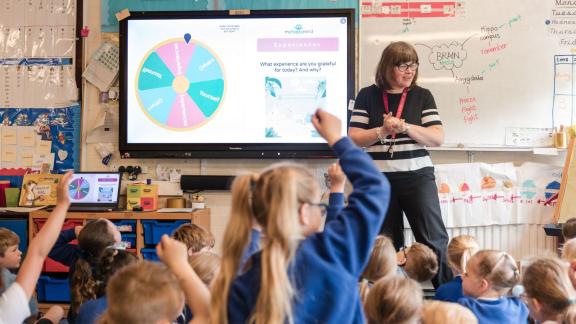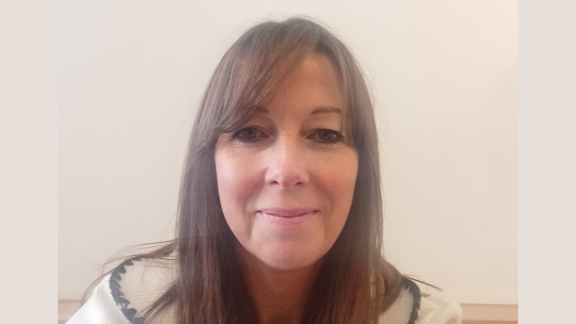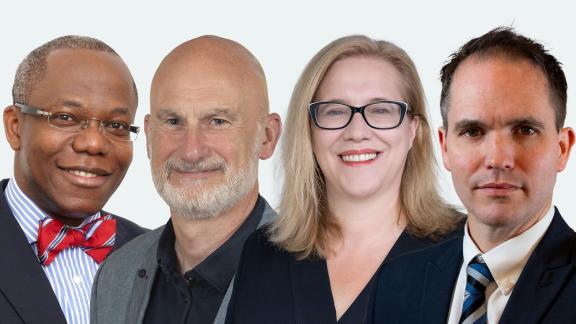Children’s in-school mental health programme alleviates pressures on services under strain

A classroom-based mental health education programme has prevented over 900 referrals to under-pressure child and adolescent mental health services and more than 1,200 referrals to mental health support teams – in just one local authority over six months.
Known as myHappymind, the programme has also resulted in a radical scaling back of referrals to special educational needs coordinators (SENCOs) within schools. This has freed up capacity to support more children with the most significant special educational needs.
The NHS is commissioning myHappymind to foster a positive approach to mental health and wellbeing in schools, with the aim of preventing mental health issues before they arise.
The approach aligns closely with the 10 Year Health Plan’s vision to embed preventative, digitally delivered mental health education in the community, and the ambition to expand mental health support teams (MHSTs) to 100 per cent of schools in England by 2029/30.
The programme features content designed for children, which is taught in class by teachers using a digital platform, an app available for parents and carers to further support children at home, and a wellbeing course for staff. myHappymind can deliver the Whole School Approach component of the MHST model.
Schools using myHappymind are seeing fewer children being referred to SENCOs and mental health support teams in schools, as well as fewer needing referrals to stretched child and adolescent mental health services (CAMHS). This highlights the preventative power of the programme, supporting children to avoid escalating need.
“It has provided a whole school approach for the first time and gives the whole school community a joint approach to mental health,” the headteacher of Hepworth Junior and Infant School reflects.
“It feels like we are doing something positive and forward-thinking rather than applying sticking plasters when children are at crisis point.”
Demand for services is outstripping supply nationally, with the latest annual Children’s Commissioner report showing that nearly 50,000 more children with active referrals were still waiting for treatment to begin at the end of March 2024, compared to the previous year.
Data 1 provided by headteachers from 31 schools out of the 128 currently using myHappymind in Kirklees, West Yorkshire, over a six-month period found the programme prevented:
- 2,100 SENCO referrals
- 1,240 MHST referrals
- 936 CAMHS referrals
The data may also be interpreted as representing the fact that while greater numbers of children require lower-level support compared to those needing a CAMHS referral, the programme has an ability to equally benefit those at the lower and higher end of the spectrum of need.
“For SEND children, myHappymind has supported them to understand their emotions and feelings and how best to manage these,” reports a class teacher at Mount Pleasant Primary School in Kirklees.
“This has meant that we have not had to make as many referrals as we might have done without myHappymind.”
Beyond direct benefits to mental health, schools also reported:
- prevented 512 exclusions, demonstrating significant improvements in behaviour and self-regulation
- resolved 1,068 Child Protection Online Monitoring System (CPOMS) incidents, helped by the institutional knowledge provided by myHappymind, demonstrating its role in supporting schools in managing safeguarding, wellbeing and pastoral issues
- positively contributed to improving the attendance of 1,440 children, particularly those experiencing emotionally based school avoidance
- it enabled schools to become more inclusive environments, particularly for children with special educational needs
The programme is being used in over 2,000 schools across more than 40 places across the UK, and has begun to be adopted by schools across Europe, Asia and the Middle East.
Exact return on investment varies between places but the average is in the region of 30x when all these factors are considered. This is because the cost of the programme is significantly lower than the cost of delivering mental health services through the NHS, which myHappymind helps to prevent the need for.
Direct costs for delivering the programme fall to individual schools, or funding is provided by places or systems through which the programme is commissioned.
“The programme provides a curriculum for teachers that’s really engaging and exciting and tailored to kids’ needs, which makes it easy to deliver for staff who often aren’t trained in health services or mental health,” explains Steve Tatham, programme lead (Starting Well, Mental Health and Planned Care) at Cheshire and Merseyside Integrated Care Board.
“It has been really well adopted by schools in Warrington and the feedback has been overwhelmingly positive, which has been great, so we have entered into an arrangement with the schools where we joint fund with them, so it is a partnership between ourselves as an ICB and system with the schools. That has led to a conversation around secondary schools who are equally keen to have something to support their young people, which we are now piloting.”
Laura Earnshaw, the founder of myHappymind, explains that the programme’s philosophy is based on five principles:
- Proactive not reactive – every child in the school accesses the programme
- Stigma reversing – focuses on positive psychology and de-medicalising mental health
- A systemic approach – a programme for the children, teachers and parents
- Equitable access for all - neuro-affirmative and tailored to support children with SEN and SEMH needs
- Fun to learn and easy to teach – a highly scalable digital solution
myHappymind was recently recognised with a King’s Award for Enterprise for its work in innovating to deliver better mental health for children.
Jane Case, assistant director of Mental Health Strategic Commissioning and CYP Programme Manager for Bury at NHS Greater Manchester ICB:
“I looked at a range of programmes but the evidence base for myHappymind really stood out to me. My background as a learner mentor in schools also gave me some insight – having to make specific individual interventions and what that involved, which led me to consider the potential benefits of a whole-school approach and what that might look like. From a commissioning perspective, I then moved forward to discuss the programme in more detail with Laura and then went away and found the money.
What has been particularly inspirational has been the feedback from children and young people and their families and the staff. From teachers around how it’s changed the culture and from headteachers about how its reduced the need for external services – how they are able to contain and support more children on their own. As a commissioner it has been very empowering having that evidence to take forward.”
Steve Tatham, Programme Lead (Starting Well, Mental Health and Planned Care) at Cheshire and Merseyside ICB:
“We were looking at a range of things we could do to support children and luckily we came across myHappymind through discussions with another colleague in Cheshire and Merseyside ICB who had been working closely with the team and had good things to say about how the programme had been received by schools within their place, particularly around younger children and helping them to understand how their mind works.
“The programme provides a curriculum for teachers that’s really engaging and exciting and tailored to kids’ needs which makes it easy to deliver for staff who often aren’t trained in health services or mental health.”
Class teacher, St Patrick’s Catholic Primary School, Kirklees:
“myHappymind has changed the mindset, thinking and understanding of regulation for our children and they are using it at home also. It has been completely transformative and it has been amazing to see children using Happy Breathing independently to calm themselves down, without needing support and intervention input.
myHappymind has provided our children with the understanding of the brain, as to why our brain goes into fight, flight or freeze and this has helped children to understand how and why it is important to regulate.”
Female student, year 6, Malpas Alport Primary School in Cheshire:
“Children need to learn about this because when they get scared or stressed and they don’t know what the amygdala does, or don’t know what Happy Breathing is, they don’t know how to control it and don’t know how to cope with it, so they will go to fight, flight or freeze and won’t know what to do.
I would say that every school needs to know about myHappymind and how to deal with your brain, because people’s brains work differently. Sometimes people can get upset easier than others.”
Male student, year 6, Malpas Alport Primary School in Cheshire:
“I think you should know how to control it because if something difficult comes around you would know what to do in that kind of situation. So it could almost stop you from doing things you know you shouldn’t, if you were calm at the time, but you feel like doing it at that moment. Instead of that you could do Happy Breathing.”
For more information
To learn more, contact Laura Earnshaw, founder and CEO of myHappymind at laura.earnshaw@myHappymind.org.
Footnotes
- 1. The data presented is based on original data from approximately 25% of the schools using myHappymind in Kirklees. To consider the impact of myHappymind across all schools, these figures have been adjusted to reflect the size of the total rollout across the area. However, local evaluations are conducted in all of the places where myHappymind is commissioned and these figures are consistent with reports from other regions including Greater Manchester, Wrexham in Wales and Hampshire and Isle of Wight. ↑



